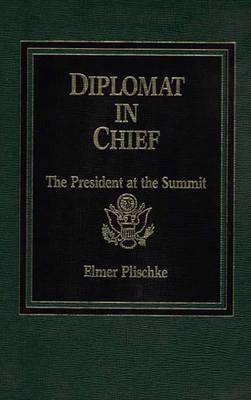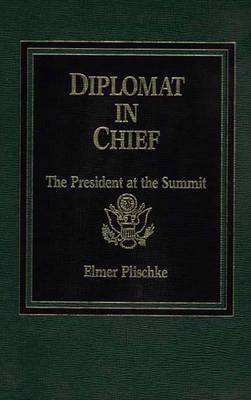
- Retrait gratuit dans votre magasin Club
- 7.000.000 titres dans notre catalogue
- Payer en toute sécurité
- Toujours un magasin près de chez vous
- Retrait gratuit dans votre magasin Club
- 7.000.0000 titres dans notre catalogue
- Payer en toute sécurité
- Toujours un magasin près de chez vous
Description
Eminent diplomatic historian Plischke has done a signal service for both students and scholars in this new look at the US president's direct role in foreign affairs. Plische, in fact, broadens the subject beyond the title of the book to look at the role of the White House in foreign policy, particularly in the use of presidential emissaries and the modern role of national security advisors. The time frame for the book is generally the 20th century, although the author appropriately covers prior events having implications for direct presidential involvement in foreign affairs. Despite the predominance of public perceptions that summit meetings are a US-Soviet innovation of recent years, Plischke explains the key role of earlier presidents such as Woodrow Wilson, Franklin D. Roosevelt, and Harry Truman. With his typically thorough scholarship Plischke produces a very long study, justified by the richness of the material. A useful bibliography and a superb index make the book even more valuable. Undergraduates as well as graduate students will find this book an invaluable source as they seek to understand the antecedents of current controversies over presidents becoming their own secretaries of state. Choice
Spécifications
Parties prenantes
- Auteur(s) :
- Editeur:
Contenu
- Nombre de pages :
- 528
- Langue:
- Anglais
Caractéristiques
- EAN:
- 9780275920401
- Date de parution :
- 31-12-85
- Format:
- Livre relié
- Format numérique:
- Genaaid
- Dimensions :
- 160 mm x 240 mm
- Poids :
- 907 g

Les avis
Nous publions uniquement les avis qui respectent les conditions requises. Consultez nos conditions pour les avis.






